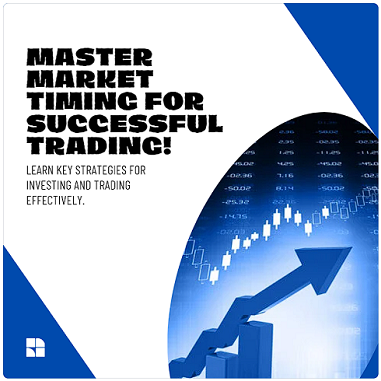
Is Timing Everything? Exploring the Role of Timing in Successful Trades By Trade Ideas
“Timing is everything,” a saying that everyone has heard, but no one likes to hear, especially investors. Although it often requires hindsight to decode, timing is always a factor in relationships, career paths, and successful trading portfolios. While many different tools make a successful trader, the amount of luck and timing play an integral role in the stock market. You can have the right strategy, the right amount of money, and even the right stock, but timing can make the difference between a profitable investment and a significant loss.
Timing can determine whether you ride the wave of a bull market or get caught in the throes of a market crash. The allure of perfect timing has led many investors to attempt to predict market movements, hoping to buy low and sell high. However, as many have discovered, timing the market is far from simple; it can be a perilous endeavor fraught with challenges and risks. In this article, I’ll explain the importance of timing, the challenges of trying to time the market, and the solutions you can take to make timing finally work out in your favor.

The Importance of Timing in the Market
Without hindsight, it is often impossible to see the potential impact of good timing on investment returns can lead to incredibly lucrative rewards. For instance, those who invested in technology companies like Apple or Amazon early on, before they became household names, would have enjoyed impressive returns as these companies grew and their stock prices soared. These examples highlight how well-timed investments can lead to outsized profits.
Look at Gamestop even; most people who profited largely from GME were just ordinary traders at the right place and time. However, those who were unsure and waited to invest until GME was in the public eye found out the hard way they were too late and lost their initial investments. Trying to wait out the market is like deciding whether or not you want to see a movie, and when you finally decide to go, you’re just in time to see the end credits roll.
While some cash out on their one-hit wonders, others decide to keep the momentum going after a luckily-timed trade can cash in on the delayed benefits of compounding. While we all must occasionally fight the urge for immediate gratification, we know that rewards we wait to enjoy taste even sweeter. The compounding effect of well-timed investments over the long term is where investors and traders can start seeing how playing the long game amplifies the lucrative effect of good timing.
The power of good timing in investing is amplified by the effect of compounding returns over the long term. When an investor makes a well-timed investment and holds onto it for an extended period, the initial gains can compound over time, leading to even greater returns. For instance, if an investor had bought shares of a company that consistently grew its earnings and stock price over many years, the compounding effect of those gains could turn a modest initial investment into a significant sum over time, highlighting the importance of making well-timed investments and having the patience to let those investments grow over the long term.
The Consequences of Poor Timing in Investing
Just as good timing can lead to substantial gains, poor timing can result in significant losses. Traveling back to the late 1990s dot-com bubble, where overconfident investors poured money into overvalued tech stocks, only to see their investments plummet when the bubble burst in 2000, is a prime example. Traders of the millennium came to learn the hard way that when it comes to the stock market, there is never such thing as a “sure thing.”
However, is the risk of not investing worth more than losing all the potential gains and future returns? Traders who play the waiting game to time the market often find it more of a losing battle. We might think we’re biding our time and being prudent, but the longer we hesitate to invest in a company, the more profit we lose out on (opportunity cost). (the potential returns that investment we could have generated). These opportunity costs can be as damaging as direct losses, representing potential ROIs we have foregone to build more wealth over time.
Of course, if we knew holding certain investments would pay off 100% of the time, we would all do it. But we don’t have that luxury; there is no crystal ball, so the fear of the unknown holds us in limbo. So, how can we find a way to avoid sacrificing direct losses or the opportunity of potential future payouts? How can we feel confident in our choices and successfully time the market without a time machine?
Solutions and Strategies
1.) Sell half: This solution is more for traders looking to profit off stocks they are unsure of staying in. Anytime you feel too emotionally attached to a certain stock/investment or are left uneasy about the price you bought it at, sell half. This is the simplest solution to settle any doubt that it won’t pay off while also keeping some skin in the game in case it does.
2.) Utilizing dollar-cost averaging: Dollar-cost averaging is a timing strategy involving investing fixed amounts of money into a particular investment at regular intervals, regardless of the asset’s price. For example, an investor might invest $500 into a mutual fund every month, whether the market is up or down. By investing a fixed amount regularly, the investor buys more shares when prices are low and fewer when prices are high.
3.) Seeking professional guidance: When the chat rooms and reddit threads aren’t giving you the help you need, it’s time to seek professional advice to get you on track. Working with a financial advisor or education program like Trade Ideas can be a valuable strategy for navigating the challenges of market timing. These professionals have the expertise, experience, and resources to help investors develop and implement effective investment strategies tailored to their unique goals and circumstances.
Trade Ideas advisors can provide personalized advice and insight into market trends and potential investment opportunities. Additionally, they can help investors stay disciplined and focused on their long-term objectives, preventing them from reacting emotionally to short-term market volatility or uncertainty.
While timing is an undeniably important factor in trading and can significantly influence outcomes, it is not the sole determinant of success or effective decision-making. No trader can successfully time or beat the market every time, but the more you stick with it, the more you’ll find timing on your side. Although it might feel like timing is everything and success is hopeless, remember that your power as an investor comes from focusing on what you can control and accepting that there will always be things you can’t.

